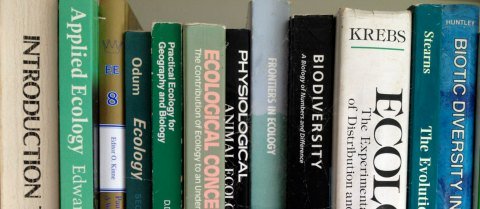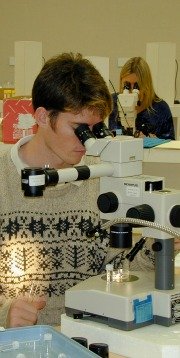Home | About CCW | Contact Us | Climate change Meaning | Causes | Solutions | Emissions | Carbon trading
Proof of climate change
Finding proof of climate change would make everyone more comfortable.
Even though we enjoy thrillers at the movies, in the real world we tend to stress and even freak out a little when we do not know what is going to happen.
The tension and fear in the faces of the people who experienced the forces of nature's earthquakes and tsunami in New Zealand and Japan spreads to us all. We feel for the innocent victims and shudder ourselves. There but for the grace of god...
It is always better to know than be in suspense. When we know we relax a little.
Knowing what is coming allows us to plan with more certainty. Decisions can be made with far less risk. So some proof or definitive evidence of climate change would help us decide what to do and feel more relaxed knowing that we are taking action.
Definitive proof has been elusive.
The reason is found in how we discover proof. We must turn to science and the technology it uses to discover evidence of something that is both too large and works on timescales that are too long for us to see or experience directly.

How we usually determine proof of climate change.
In a courtroom guilt is established by weight of evidence. Facts are presented and accumulate until the truth can be pieced together beyond reasonable doubt.
In science proof comes from evidence too.
Measurements (facts) are generated from controlled manipulations (experiments) designed specifically to test a proposed explanation (hypothesis).
Sufficient repeatable measurements allow the explanation to be accepted or rejected.
Some scientific phenomena do not allow for experimentation. Only observations are possible, made real as measurements of physical phenomena such as temperature, sea level, concentration of gases and the like.
These measurements (facts) are true in themselves but any explanation of them can only be inferred not proven.
We can surmise and postulate what the measurements mean but we cannot be sure of our interpretation.
Inference can be strong or weak but, being based on probability, it is always a likelihood and not definitive proof.
Inference always leaves room for doubt. And back in the courtroom, doubt precludes a conviction. The accused is innocent until proven guilty.
The evidence for climate change
We cannot undertake a controlled experiment on climate. The Earth is unique so we have no replicates and no control subjects with which to compare with those we have manipulated.
Equally most of the phenomena we imagine are responsible for climate change are too large and complex to replicate in the laboratory.
So we are left with observations and inference.
Recall that climate change is not a change in the weather, nor is it a record temperature, droughts, floods or severe storms. It is a consistent, systematic shift in weather patterns.
A change in average weather.
In other words it takes time.
Scientists have been able to reliably measure and record weather patterns for perhaps 150 years, getting progressively better at it as technology and instrumentation has improved.
For example, the longest direct measurement of atmospheric CO2 concentrations comes from an observatory on the Mauna Loa volcano in Hawaii with continuous records since 1958.
These data are enough to see a trend but CO2 concentrations are an indicator and not proof of climate change.
Historical records from writings, paintings and oral history provide anecdotal evidence. Images of the frozen River Thames during the Little Ice Age of the 1600's are provocative. They point to conditions in the past being different from those today. This is evidence enough for some.
Observation of effects tells us that climate changes and observation of drivers suggests that the causes exist.
Given enough time any one location will see uplift, erosion, deposition, drift and certainly different climates.
This amounts to strong inference for climate change over geological time.
The challenge is abrupt climate change and what it means if our activities were the cause, if it really is anthropogenic climate change

Conclusion
Strong inference is not proof of climate change, mainly because correlation does not prove cause.
And so there will be debate, argument and polarization of opinion.
Decision makers will procrastinate.
In conservation there is the precautionary principle that says take action just in case.
There is more than enough evidence for us to do that.
Back to top of Proof of climate change | Back to What is climate change? | Back to Climate-change-wisdom home page

Recent Articles
-
Reducing emissions while looking for solutions...
Nov 01, 15 04:46 PM
I've seen a lot of post's online for ideas on reducing emissions. The one suggestion I have not seen, is the most obvious. There should be a government -
Climate change evidence
Mar 24, 15 06:22 AM
Real climate change evidence has to demonstrate a change in climate. An extra sunny day or a severe storm or a flood is not enough. -
The climate change effect
Feb 19, 15 03:08 AM
What will be the climate change effect? There isn't one, there are many. Perhaps too many for us to understand.

New! Comments
Have your say about what you just read! Leave me a comment in the box below.